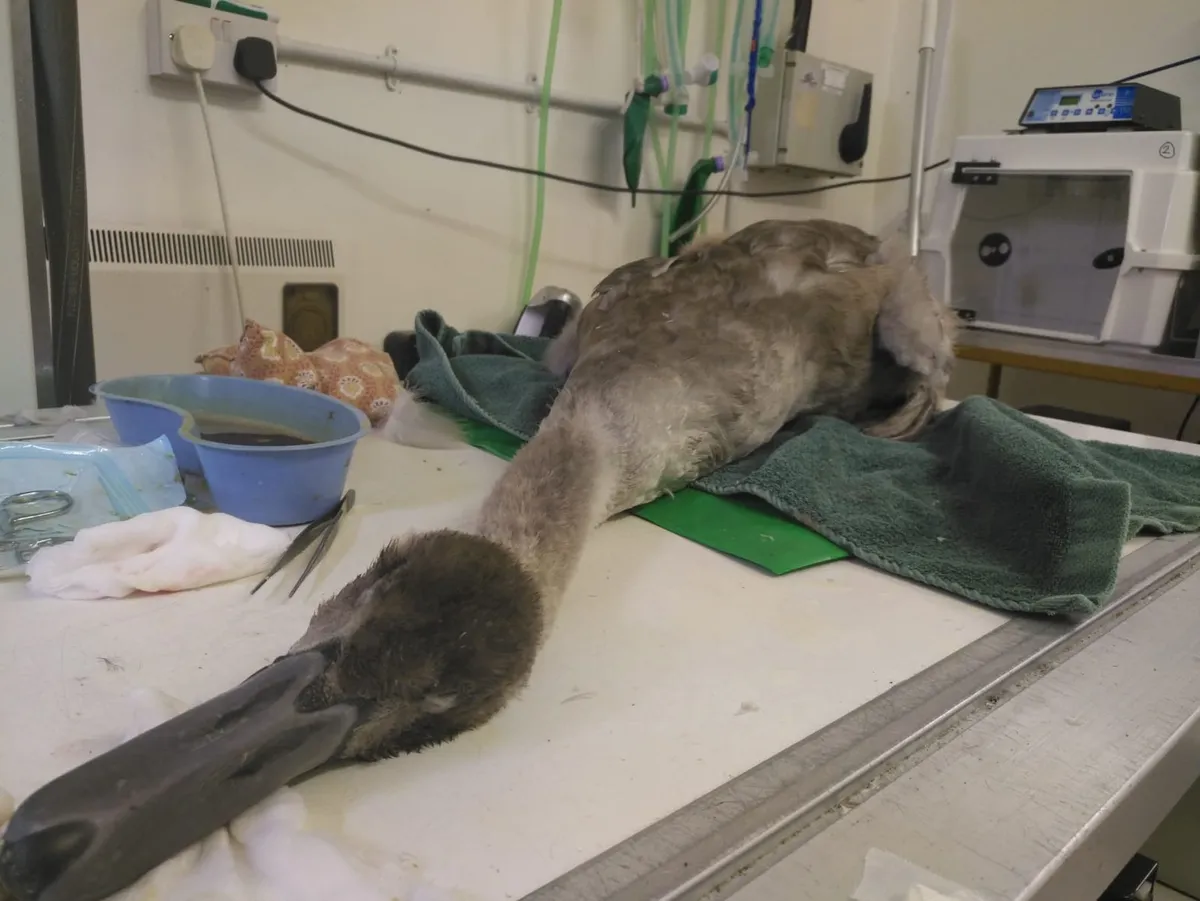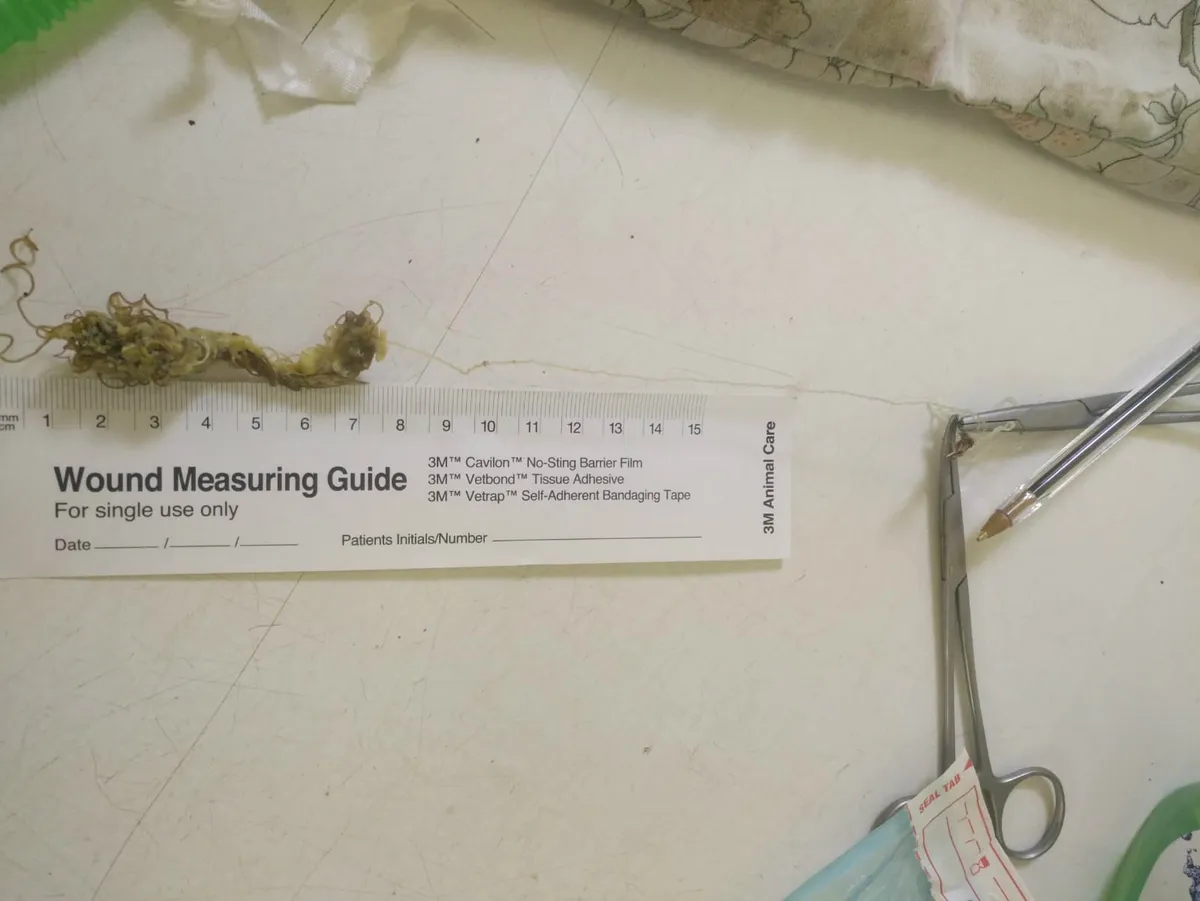A male cygnet is recovering at an RSPCA centre after an ordeal involving a 7cm-long fishing hook in his throat and a 15cm-long fishing line around his oesophagus.
The bird was rescued from a lake in Rotherham, South Yorkshire, in late August and was initially taken to a local vet. However specialist care was required, and he was transferred to the RSPCA’s Stapeley Grange wildlife centre in Nantwich, Cheshire.
The vets at the centre were able to put a camera down the cygnet’s throat, and managed to remove the hook and untangle the fishing line.

The cygnet is now recovering, and should be released into the wild soon. This case, along with a number of others, has prompted the RSPCA to urge anglers to take their litter and equipment home with them.
“This cygnet had a very lucky escape as he could have been much more seriously injured,” says Lee Stewart, manager at Stapeley Grange.
“If someone had disposed of their fishing litter correctly in the first place, then these birds would never have needed our care. Most anglers do clean up after themselves but sadly there are quite a few who don’t and this is what happens when fishing litter is left lying about.”

There are currently four other birds in the isolation unit at the centre, and more in the outdoor enclosures, which are recovering from injuries caused by fishing lines or hooks.
In 2017, 678 animals were rescued from fishing litter by the RSPCA, 463 of which were wild birds.
“We do see a lot of instances like this at Stapeley Grange - we wish we didn’t see anything like this at all, it is so frustrating for the team. Just a little thought and care could save an animal’s life."
